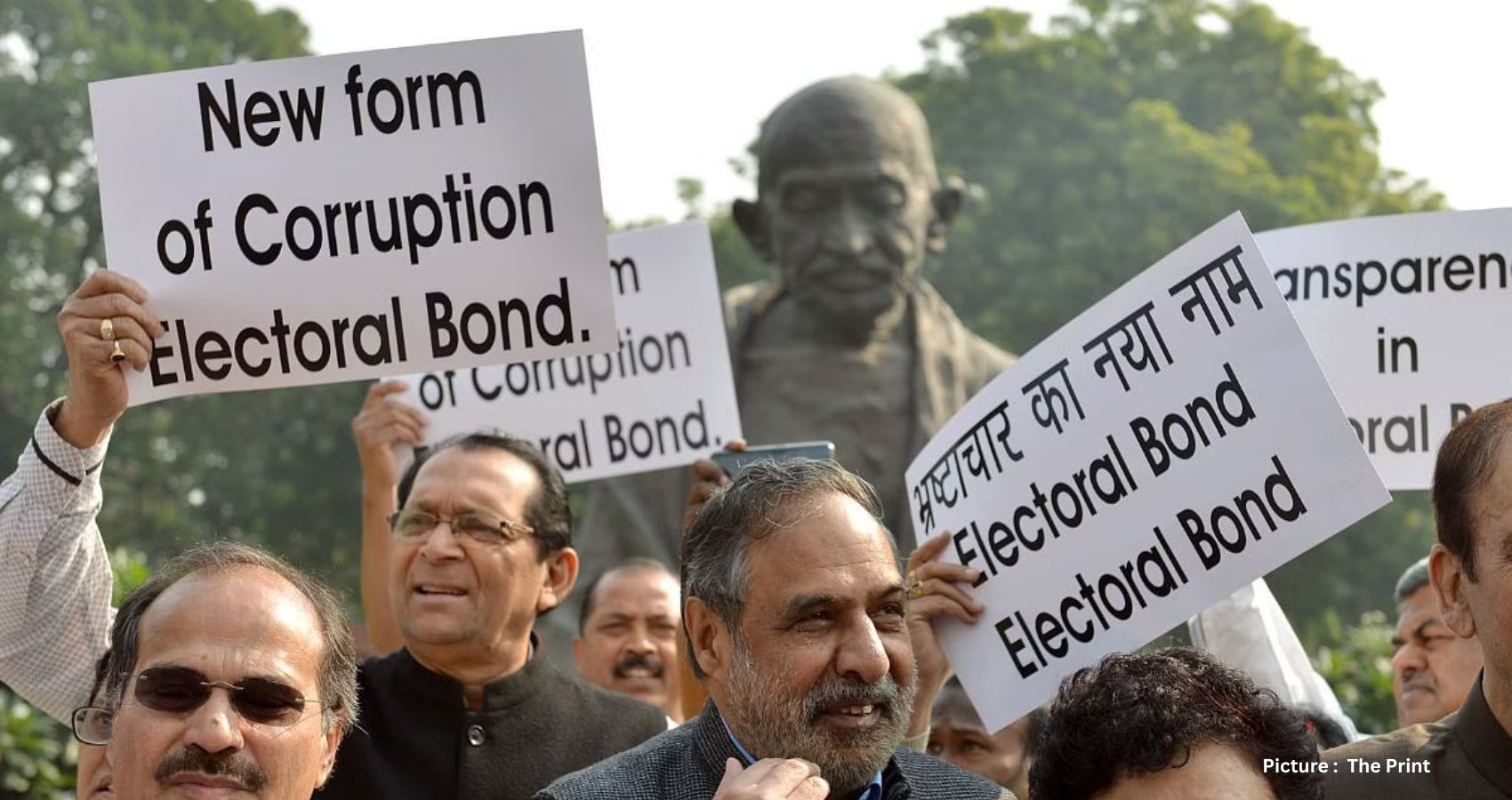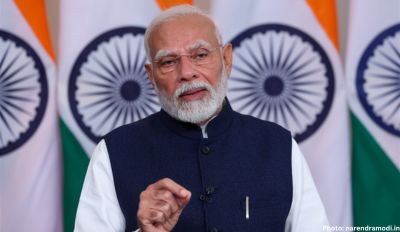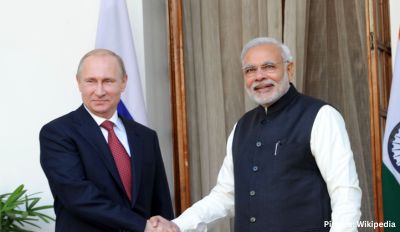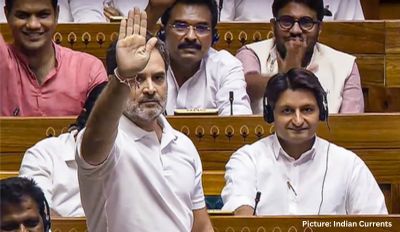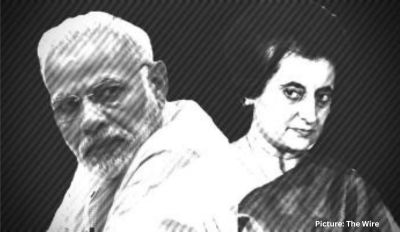This much should be now clear and settled to any reasonable person – the scheme of electoral bonds was an extortion racket, even if it is granted that – to be charitable to its designers – that was not the intention with which it was devised. The legalised corruption that the scheme unleashed will be studied and analysed for a long time and will go down as a milestone in the history of scandals, one that leaves nothing to the imagination given the remarkable and audited documentation that it leaves behind.
Specifics of the transactions in all their horror, particularly when it comes to a) pharma companies and their donations in the wake of investigations into the quality of drugs, b) assorted investigations that began and stopped after “donations”, one of these kinds leading to the process against Delhi Chief Minister Arvind Kejriwal, c) long-pending clearances and other accommodation in favour of business houses against payments and d) a clear path for foreign funds coming in as donations, are just the headline concerns. They point to not only the anti-national character of the scheme but also stand out as an invitation to corruption – an open-door policy that lays out a clear path to tamper with the Indian system.
What can a business leader or a vested interest not do when the price is known, legal cover is guaranteed, secrecy is written into the law, and the party of the Prime Minister of India is the recipient of the booty? It legitimises the “rate-card” method of corruption that makes rent-seeking an efficient, predictable and quantitative enterprise, only that this one is legalised, works at the highest echelons of power, and gets your job done, whatever that job be. It marks the collapse of India as a modern democratic nation and a firm entry into the territory of a banana republic, with an outer sense of calm barely concealing an inner dealing room where the dirty jobs are done. This is the inner rottenness of India’s growth story, a self-imposed colonisation of a nation that has lost its standing, never mind the growing GDP.
Deep damage to nation
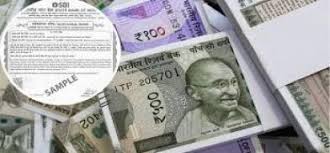
What A R Antulay as chief minister set up in Maharashtra can be described as an early version of the electoral bonds scheme, save that his collections were meant for the poor and not funds to fight elections. Antulay was forced to resign in 1982 when what was then universally regarded as a monumental scandal about “donations” to trusts he controlled came to light. It was the BJP that filed the case against Antulay, who collected Rs.50-odd crore in trust funds, partly in return for cement allocations to builders at a time of shortages. As the scandal hit the national headlines, the BJP was at the forefront of raising issues of corruption. L K Advani led efforts to highlight the scandal. Today, the same party has reached a stage where its leadership talks of a pro-rata justification of the collections: we got this much with so many MPs versus the amount that the opposition got with fewer MPs, as the attempted justification offered by Home Minister Amit Shah goes.
Yet, the deep damage caused to the nation by electoral bonds is yet to be captured. The bigger twist is that India must come to terms with the realisation that its directional 1991 turn to the era of liberalisation and privatisation has failed. India’s liberalisation was meant to free the private sector from the license-control-Raj, fire up “animal spirits”, the term given to us by John Maynard Keynes, and provide the economic escape velocity to enable us to float high above the so-called Hindu rate of growth. Pre-reforms, businesses kept liaison offices in New Delhi to ease the process of business-government interaction. In one case from a long time ago, the chief executive of Unilever in India was asked to meet Prime Minister Indira Gandhi to help put an end to price control on soap, which had been brought in a desperate bid to control inflation in light of the “oil shock” of the 1970s. None of this would be required after Dr. Manmohan Singh under Prime Minister P V Narasimha Rao abolished industrial licensing on July 24, 1991, and declared: “As a whole, the Indian economy will benefit by becoming more competitive, more efficient and modern and will take its rightful place in the world of industrial progress.”
What has this turn yielded? India has GDP growth but government spending remains a significant part of this growth. The private sector still has to and is equally happy and willing to negotiate the corridors of power and pay speed money to those who matter. The ones closest to power have grown the most. Worse, the inefficiencies this builds into the system will not allow the private sector on the one hand to mature and on the other hand to stand up to authority, build governance systems, take bold decisions and the risks that must come with “animal spirits”. Why risk it all when there is a side gate to manage the process?
A handmaiden of government
With a bent spine, it is entrenched players who will continue to rule and what we have in the name of the private sector (barring some exceptions) is money-making at all costs and with the least risks to the money-makers. This cannot be the dream of an India firing away on all cylinders to solve the burning problems of society. It is, therefore, no surprise that with liberalisation, we have built wealth and income inequality higher than that obtained during the British Raj, as the World Inequality Lab’s working paper titled “Income and Wealth Inequality in India, 1922-2023: The Rise of the Billionaire Raj” by Bharti, Chancel, Piketty and Somanchi notes. It should also be clear that India’s private sector has not really matured and remains comfortable only as a handmaiden of the government.
It may therefore not be a stretch to argue that there is not a strong and purposeful private sector worth the name in India. It is no surprise that many Indians still don’t trust private enterprises. In India today the working system is to pay a price, buy peace and make money – the government and those with the means stand together in an anti-people agenda.
(The writer is a journalist and faculty member at SPJIMR, Mumbai. Views are personal. By special arrangement with The Billion Press)
Read more at: https://www.southasiamonitor.org/perspective/electoral-bonds-scandal-india-speaks-compromised-private-sector

